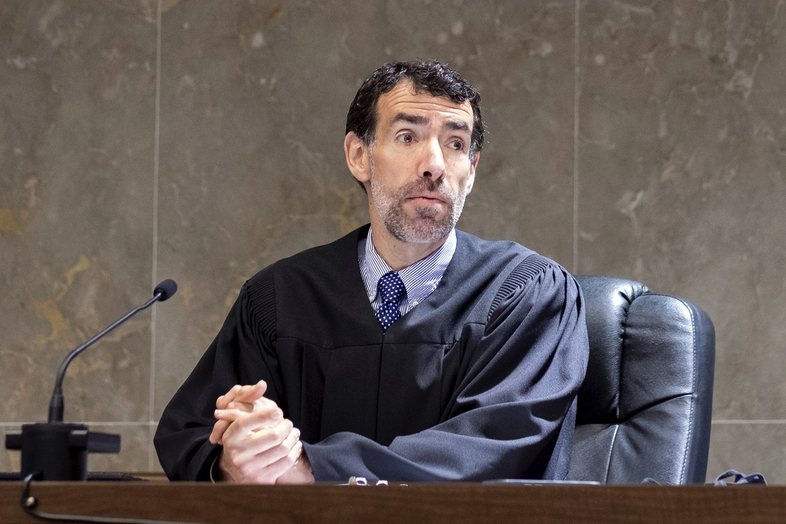
A judge overturned Georgia’s ban on abortion starting around six weeks into a pregnancy, ruling Tuesday that it violated the U.S. Constitution and U.S. Supreme Court precedent when it was enacted and was therefore void.
Fulton County Superior Court Judge Robert McBurney’s ruling took effect immediately statewide, though the state attorney general’s office said it planned to appeal. The ban had been in effect since July.
It prohibited most abortions once a “detectable human heartbeat” was present. Cardiac activity can be detected by ultrasound in cells within an embryo that will eventually become the heart as early as six weeks into a pregnancy. That means most abortions in Georgia were effectively banned at a point before many women knew they were pregnant.
In a lawsuit brought in July by medical professionals and advocacy groups, who sought to have the ban overturned on a number of grounds—including that it infringes on women’s constitutional rights to privacy and liberty—McBurney made her decision. On that assertion, McBurney made no decision.
His decision supported a different claim made in the lawsuit, however, that the ban was unconstitutional because it went against Supreme Court precedent and the U.S. Constitution at the time it was enacted.
Chris Carr, the attorney general of Georgia, stated in an email that the office plans to launch a “urgent appeal,” according to Kara Richardson, a spokesperson for him.
Georgia’s law was enacted by state legislators and signed by Republican Gov. Brian Kemp in 2019, but it couldn’t go into effect until Roe v. Wade, which had upheld the right to an abortion for nearly 50 years, was reversed by the Supreme Court.
Just over three weeks after the high court’s decision in June, the 11th U.S. Circuit Court of Appeals permitted Georgia to start enforcing its abortion law.
State-run abortion facilities remained operating, although staff members reported turning away several women because heart activity had been found. Then, those women had the option of getting an abortion in another state or staying pregnant.
Abortion providers told McBurney at a two-day trial in October that the prohibition was upsetting women who were denied the surgery and confusing doctors.
“Everywhere in America, including Georgia, it was unquestionably unlawful for governments — federal, state, or municipal — to ban abortions before viability,” McBurney stated in his ruling.
The state law “did not become the law of Georgia when it was enacted and it is not the law of Georgia now,” he claimed in his essay.
The state had argued that the Supreme Court’s decision rendered the Roe decision irrelevant because it was flawed in and of itself.
McBurney did give the state Legislature the option to review the ban.
The 2019 bill’s ban on abortions “may someday become the law of Georgia,” he said, especially now that the Supreme Court has overruled Roe v. Wade.
But according to his letter, that can only happen after the General Assembly “determines whether the rights of unborn children justify such a restriction on women’s right to bodily autonomy and privacy in the sharp glare of public attention that will undoubtedly and properly attend such an important and consequential debate.”
Georgia’s law permitted late-term abortions in cases where the mother’s life was in danger or a significant medical condition rendered a fetus unviable, as long as a police complaint was submitted and exclusions were made for rape and incest.
State witnesses refuted the assertion that it was unclear under the law when doctors could step in to carry out a later abortion during the October trial. Additionally, they claimed that abortions might actually injure women.
The race for the U.S. Senate in Georgia between Democrat Raphael Warnock and Republican Herschel Walker, which will now go to a runoff in December, focused heavily on the issue of abortion. Walker, an anti-abortion activist, was accused by two women of paying for their procedures. Walker categorically refuted that.





